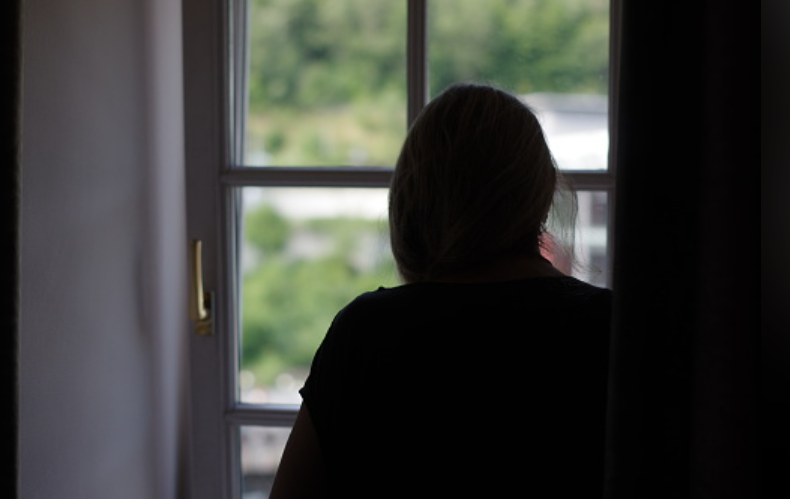
When Marigold was brought to the UK as a domestic worker, her employer made her sleep on their dining room floor. The food she ate consisted of the family’s leftovers, and if there were none, she didn’t eat.
Her employer had confiscated her passport, and so when she fled the abuse she had no documentation. Identified in 2018 as a probable victim of modern slavery, she was referred to the government programme designed to help those in her situation, the national referral mechanism (NRM).
She has been waiting ever since for a decision to be made on whether the government will confirm she is a victim of slavery, which would give her the right to work. If they find against her, she faces deportation.
Marigold is one of nearly 9,500 suspected victims who have been waiting more than two years for a decision, data obtained by The Independent reveals.
The NRM is designed to identify modern slavery victims and give them support while their cases are investigated. But survivors now face a 22-month wait on average for a decision that could affect their status in the UK, government figures show. The waiting time for a decision on whether a claim is genuine has soared – from 459 days on average in 2019 to 680 days in 2022.
Caseworkers and victims told The Independent that the lack of support and minimal financial help available to survivors when they are referred to the scheme is pushing people back into exploitation.
The warning comes amid criticism of Rishi Sunak’s plans to deport small-boat migrants, as laid out in the Illegal Migration Bill. If passed into law, it would see trafficking victims who arrive in the UK illegally deported to Rwanda while officials are still investigating their claims.
Women who have been referred to the NRM and are being supported by campaign group The Voice of Domestic Workers told The Independent that being forced to wait for years for a decision has left many with no choice but to turn to underground work.
Many domestic workers are brought to the UK on six-month work visas and forced to work as slaves in the houses of rich families. Their passports are often taken away and they are told scare stories to dissuade them from leaving.
For women in this situation, it is crucial that, when they do flee, they are still allowed to work in the UK. If they are referred to the NRM while their visa is still valid, they retain their right to work. But if they are referred after their visa expires, they can spend years with no right to work – barely surviving on the government’s subsistence payments.

However, some victims face difficulties even if they do manage to keep their right to work, as employers don’t understand the NRM and can be wary of employing those in the system.
Filipino domestic worker Wendy was referred to the NRM in November 2018, and was able to keep her right to work, but faced this exact problem when trying to find work.
In the three years that passed while she was forced to wait for a decision, she fell back into modern slavery. “When you are waiting for a conclusive grounds decision, all you have is a piece of paper from the Home Office, and the employers often don’t accept that,” she says. I was forced into another job, where I was working long hours. I worked seven days a week, 24 hours a day. I didn’t get any annual leave or holidays, but I stayed because I did not want to be homeless.”
She continues: “When I received an initial positive decision with the right to work in 2018, I began to look for another employer, but no one understood this NRM and no one recognised my right to work. I have been in and out of many abusive employers that either didn’t pay me or paid me very little.
“When the lockdown started in March, I became lonely and traumatised again. My employer threatened me, telling me if I left the house, ‘Do not come back!’ I had no choice but to stay in my employer’s household, or else be jobless and homeless. For two months I worked unpaid. To continue supporting my family, I was working 105 hours a week – including during my days off – for £400, or £3.80 per hour.”
Cielo Tilan, who works at Kanlungan Filipino Consortium, says that many of the women she supports are exploited while under the government scheme.
She says: “They have been considered by the Home Office to be victims of modern slavery, but if they still have their right to work then they get no financial support. The right employers don’t consider them to be legal workers, and that’s why they are exploited again. They can’t complain or say no because of their situation – they are in fear of being sacked or becoming destitute.
“Who will provide them with the proof that they have the right to work? Because a lot of them don’t even have their passports, and they don’t have any document that says they have the right to work.”
Joy, another woman being supported by The Voice of Domestic Workers, missed out on retaining her right to work by only a few days because no one could take on her case in time.
She describes how she was brought to the UK: “In June 2022, my employer told me we were going to London. I had no choice but to obey ... The secretary came to the house and asked me to sign the papers and told me they were going to submit for my visa in the UK. I wasn’t allowed to read any of these documents, and I was told to sign them quickly.”
Joy says that she barely had time to eat during the working day, and was only able to rest when she was allowed to go to a church and pray. “No matter how I worked in this family, they always treated me as no one and nothing and as a slave,” she says.
She searched for help on Facebook and found the Voice of Domestic Workers support group. One day in August 2022, she pretended to go to church and instead took a taxi to their office. She had no money and had to ask the group to pay for her cab.

Gladys got her initial NRM decision, which says she is likely to be a victim of modern slavery, in 2019, but she is still waiting for a final decision.
She says: “I’ve been waiting now for five years. It’s very hard for me because I need to work. I need to do something to earn money, and I have a family to support back home in the Philippines. The money that I am given now is not enough. I am forced to rely on the kindness of friends. It is like living in a kind of prison.”
Marissa Begonia, from The Voice of Domestic Workers, says: “Why are they not looking for the real criminals? We are not the criminals. We are workers, not victims, and we want the right to work.”
Katie Schwarzmann, a solicitor at Wilson Solicitors, a firm that supports victims, says that falling back into exploitation is not just a problem for domestic workers but also for other people who have been trafficked.
She says: “We have numerous clients who are victims of trafficking and are not provided with adequate support by the government. Many are arrested in circumstances that strongly indicate that they are victims of modern slavery and trafficking, but they are immediately treated as suspects rather than potential victims. This denies them the protection and support they are entitled to, often leading them back into exploitative situations.
“In our experience, the Home Office fails to adequately safeguard them, and our clients have immediately gone missing and are found many months or years later in trafficking situations.”
Some 566 potential or confirmed victims of modern slavery were categorised as “missing” between 2020 and 2022 after being referred to the NRM, according to freedom of information data seen by The Guardian.
A Home Office spokesperson said: “Modern slavery is a barbaric crime and we remain committed to stamping it out. We provide accommodation, financial support, and access to a support worker, to thousands of victims each year through the modern slavery victim care contract, to help them rebuild their lives.
“While the UK’s response to modern slavery is world-leading, we continue to hold all policies and procedures under review, including options for how to reduce the current average decision-making times.”







